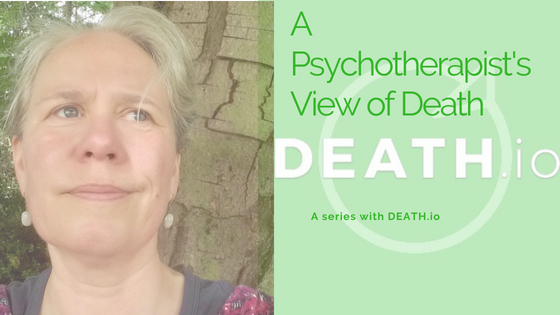Many people affected by cancer struggle with how to communicate about what is happening. There are so many questions. When is the right time? How do you do it? Do you tell everybody or just a few? How will they respond?
If you or someone close to you has cancer, then the dilemma of telling other people or not will be a familiar one. The same goes for other life-changing or life-shortening illnesses and traumatic events.
Why do some struggle with talking about cancer diagnosis, and others don’t give the decision a second thought?
 A cancer diagnosis changes everything. It can leave people feeling stunted, unable to comprehend what has just happened and what is about to happen. For some, talking about cancer happens automatically. It is a release; a search for help and safe ground, when all else has turned into nothingness.
A cancer diagnosis changes everything. It can leave people feeling stunted, unable to comprehend what has just happened and what is about to happen. For some, talking about cancer happens automatically. It is a release; a search for help and safe ground, when all else has turned into nothingness.
Others are too shocked to speak about it. They need time for the new reality to settle in. It is not uncommon for people to decide to keep the diagnosis to themselves or only tell a selected few.
Reasons for not talking about a cancer diagnosis
There are many reasons for not talking about a cancer diagnosis, including a fear of:
Being judged: will people label me and reduce me to my illness?
Being pitied: will people feel uncomfortable and sorry for me?
Being rejected: will people turn the other way, and friends or family leave me?
Being a burden: will others be able to cope with the news (eg children, aging parents)?
Being disadvantaged: will an employer or colleagues think I can no longer cope with my job?
Becoming the centre of attention: I don’t want others to make a fuss about me.
Becoming weak: will people think I am weak and cannot cope?
Becoming drained: I need to keep my focus and do not want to be distracted by the emotions of others.
Loneliness: there might not be anybody we can talk to.
None of this is right or wrong. We are what we are. We do what we think best.
When I was first diagnosed with breast cancer, I decided to tell others
![]() I told everyone that needed to know, including my neighbours. The one group of people I did not tell were my therapy clients. I have been regretting that ever since. Second time around I did it differently.
I told everyone that needed to know, including my neighbours. The one group of people I did not tell were my therapy clients. I have been regretting that ever since. Second time around I did it differently.
Most importantly, I told those around me what I needed from them – business as usual, no pity, no worry, and no change.
Telling my ageing parents, who live abroad, was the most difficult decision and conversation of all. Should I tell them after the tests and before the diagnosis, so they have time to prepare, but may worry unnecessarily? Or do I tell only if the diagnosis is positive and then cause them a massive shock? I opted for the former.
Whichever way you turn it, telling those close to you about a cancer diagnosis is not easy.
When I was re-diagnosed with breast cancer, I also decided to tell others
This time around it was different. Perhaps because first time I had less understanding of what I was going to be in for.
This time around I know much more about cancer, treatment options and its physical, emotional, mental, financial and social side effects.
I talked about my cancer diagnosis to others in stages.And this time I made a point in including my therapy and counselling clients. My previous therapeutic and ethical concern about self-disclosure no longer applied.
 When my own therapist stopped working I found out by email. I also found out about his death by email. I am sure there were good reasons for it all. But it caused me anger, a lot of grief and anxiety. And I think I might have caused the same in the way I handled (not) telling my clients first time around. We have to learn our lessons.
When my own therapist stopped working I found out by email. I also found out about his death by email. I am sure there were good reasons for it all. But it caused me anger, a lot of grief and anxiety. And I think I might have caused the same in the way I handled (not) telling my clients first time around. We have to learn our lessons.
This time around I spoke with my clients about may diagnosis, face-to-face in our sessions; about the impact this (and any) difficult news can have. We talked openly about my need to take a break from work, and how I would keep everyone posted on my future plans, once all the scan results are back in. We all agreed this was the right way to do it. And I am glad I felt well enough (physically and mentally) to do it.
Why did I tell others about my diagnosis?
I told others about my diagnosis for many reasons:
In all my uncertainty, this was one area where I could exercise control, express a view and make an immediate difference to my life.
I did not want to second-guess who knew and who did not.
I also did not want to explain, again and again.
I wanted to be left to get on with things.
Keeping your diagnosis a secret
Keeping a secret of the magnitude of a highly distressing (and potentially terminal) illness and treatment experience comes at a cost.
Some of us are expert stoics, and you would never have a clue of what is really going on inside.On the downside, stoics’ emotional self-reliance often leaves them isolated and lacking essential assistance from others.
Lying, pretending, thinking we need to protect others, and being frightened of what others may do as a result of knowing the truth about our health – all of that takes a lot of energy. This in turn increases the already substantial stress and anxiety we will find ourselves in.
What to do?
Undergoing cancer treatment, facing up to a terminal diagnosis, and living with or beyond cancer is not easy. It can take single-minded determination to deal with treatment and its side effects, as well as life-long uncertainty or the certainty of death. It is a roller coaster of unexpected mixed emotions.
 Having lost certainty of health and life can lead to an overwhelming sense of helplessness and loss of control. How we decide to share our news and talk about cancer with others, or not, can be an important moment in taking charge of what is happening.
Having lost certainty of health and life can lead to an overwhelming sense of helplessness and loss of control. How we decide to share our news and talk about cancer with others, or not, can be an important moment in taking charge of what is happening.
It is our prerogative to talk about cancer, or not, to share or withhold, to decide when the time is right, and who needs to know what.
The key is that the choice we make is based on our explicit decision of what is best for us and not others, and that whatever we choose to do, we’re not motivated by a fear of what might happen if we tell. That’s not always easy, I know, especially when others depend on us.
Telling the truth can be tough at the outset but in the long-run less damaging for all concerned (including children, who otherwise may feel left excluded and abandoned).
Standing up for ourselves, making an informed choice about whether to tell others or not, may feel difficult. But it is our prerogative. No one else can give us this permission. It is ours to take and to insist on.

Karin Sieger is a London-based psychotherapist and writer. Her blog KarinSieger.com is among the Top 10 UK Psychotherapy Blogs. Karin specialises in support with personal transitions, grief, loss, making peace and the emotional impact of cancer, for which she has been treated herself. You can follow Karin via Twitter, LinkedIn or Faceb




